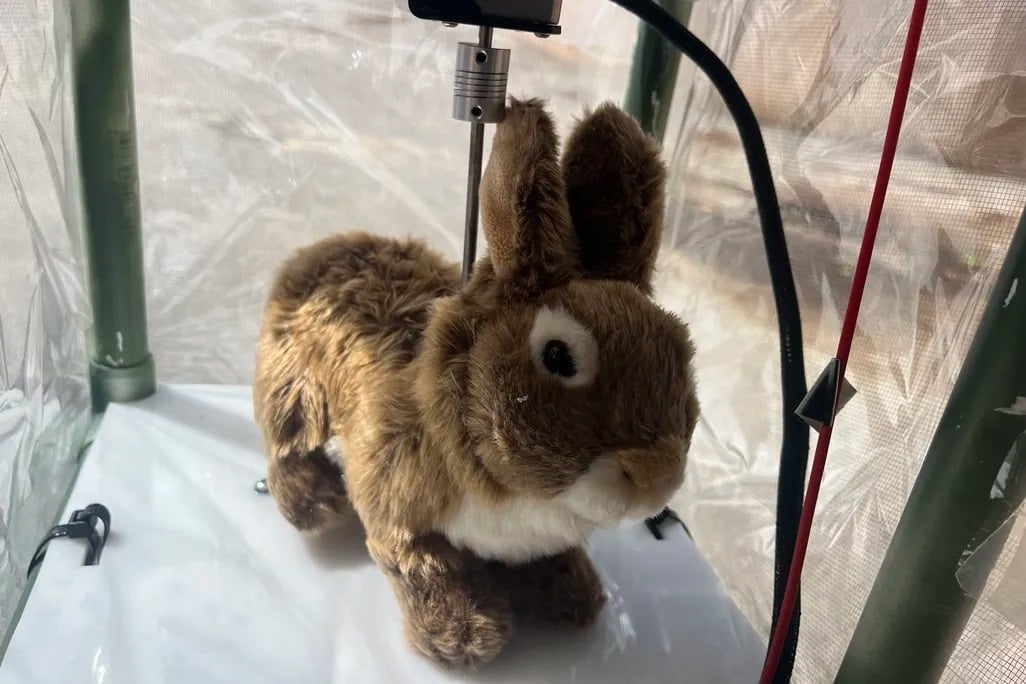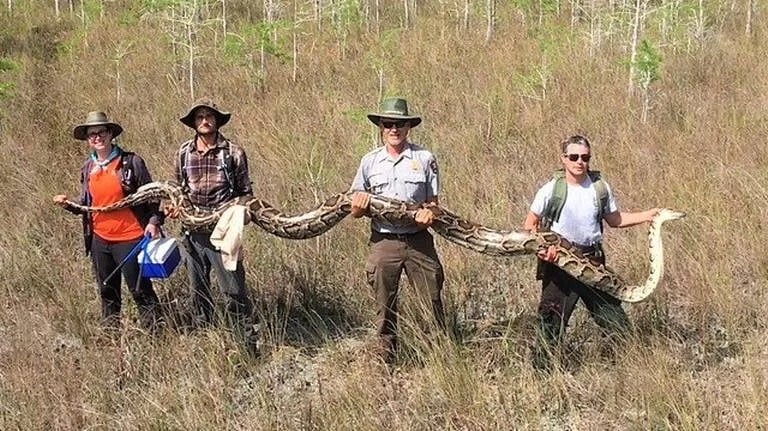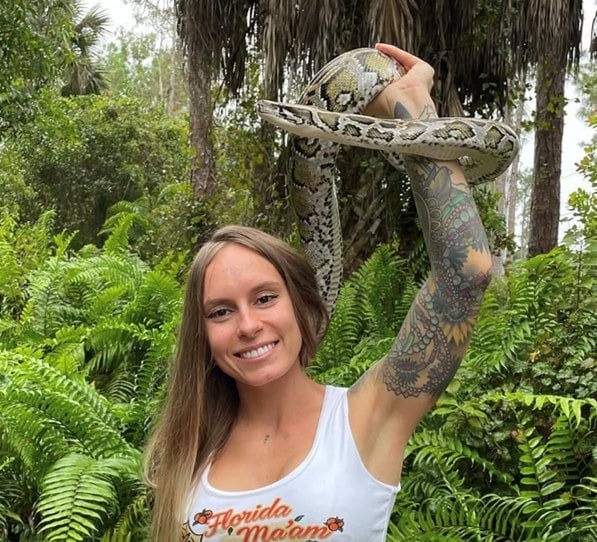 Robot bunnies may help Florida’s fight against Burmese pythons (Credit: Dr. Robert McCleery)
Robot bunnies may help Florida’s fight against Burmese pythons (Credit: Dr. Robert McCleery)
Scientists in Florida have turned to an unusual tool in the fight against invasive Burmese pythons — remotely-controlled robotic rabbits.
The life-like “robo-bunnies” are the brainchild of Dr. Robert McCleery and his team at the University of Florida. Fitted with solar-powered heaters and motors, the robots mimic the warmth and movement of real rabbits — a favorite food of the large snakes. The waterproof robots are connected to motion-detection cameras that alert park officials when a python comes close. This allows them to catch the snake before it can cause more damage.
 This 17-foot long Burmese python was captured in 2019 (Credit: Big Cypress National Preserve/ Facebook)
This 17-foot long Burmese python was captured in 2019 (Credit: Big Cypress National Preserve/ Facebook)
Burmese pythons are a serious threat to the Everglades ecosystem in South Florida. Native to Southeast Asia, these massive snakes can grow up to 20 feet (6 m) long. They were first brought to Florida as exotic pets. In 1992, Hurricane Andrew destroyed a python breeding facility, releasing many snakes into the wild. With no natural predators, their numbers have grown quickly. This has put native animals, such as rabbits, raccoons, and even the endangered Florida panther, at risk. A 2015 study found that pythons caused 77 percent of rabbit deaths in Everglades National Park.
Robot bunnies are now being tested across South Florida. If successful, they could help reduce the python population, allowing native wildlife to recover.
“Working in the Everglades for ten years, you get tired of documenting the problem. You want to address it,” says Dr. McCleery.
 Taylor Stanberry is the first woman to win the python challenge (Credit: Florida Fish and Wildlife/ Facebook)
Taylor Stanberry is the first woman to win the python challenge (Credit: Florida Fish and Wildlife/ Facebook)
This is not the only creative method officials are using to control pythons. Since 2013, they have also held the Florida Python Challenge. The 10-day competition, held every July, awards $10,000 to the person who catches the most pythons. In 2025, a record 935 hunters from 30 states and Canada removed 294 snakes. Even better, Taylor Stanberry made history as the first woman to win the contest. The 29-year-old caught 60 pythons!
Resources: NPR.org, Smithsonianmag.com, NBC.com
